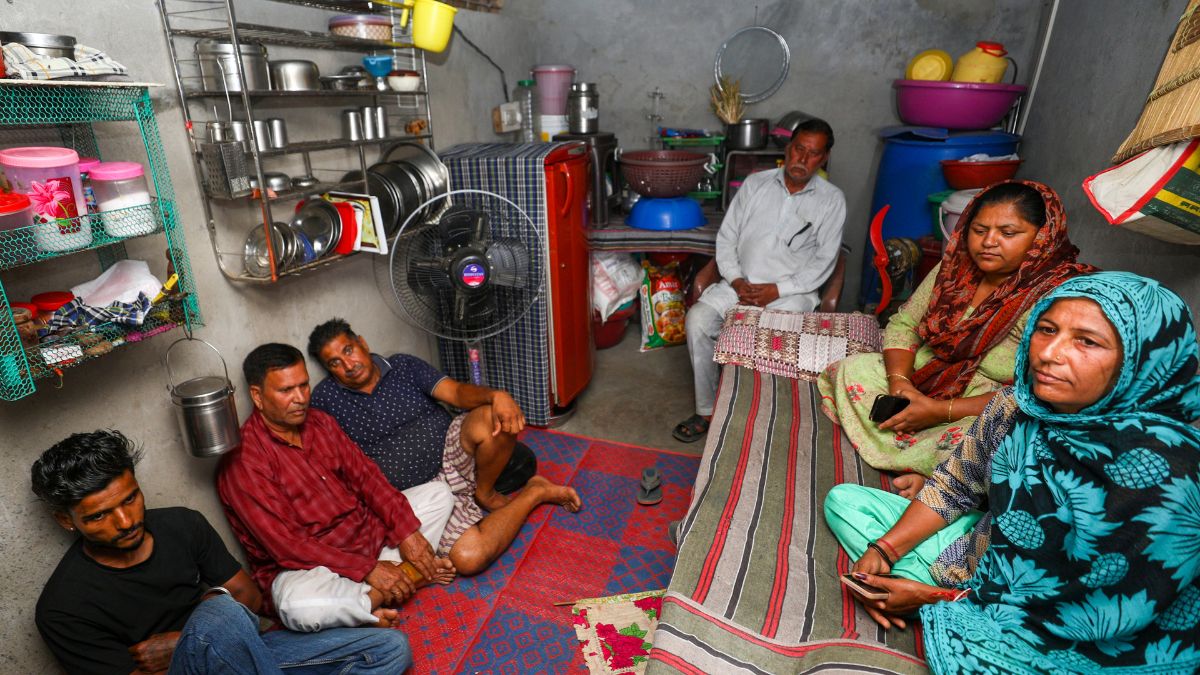Operation Sindoor: 600 more bunkers, automated siren system for Kathua
 People take shelter in a bunker in Jammu on May 8, 2025 | PTI
People take shelter in a bunker in Jammu on May 8, 2025 | PTI
The Centre will build 600 more family bunkers and install an automated centralised siren system in Kathua district to protect civilians living along the International Border (IB) in Jammu and Kashmir.
The announcement was made by Dr Jitendra Singh, Minister of State for Science and Technology and Earth Sciences, during his visit to the border areas in Kathua.
He gave full credit to Prime Minister Narendra Modi for the major improvements in security and development along the border since 2014.
“It is due to PM Modi’s vision and decisive leadership that the people living in vulnerable border belts now feel secure,” Dr Singh said. “These additional 600 bunkers are part of that larger national security and welfare plan.”
The 600 new bunkers will be in addition to the 2,000 already built in the Kathua district.
The decision comes after a strong public demand after the success of the bunker system during Operation Sindoor, when many residents took shelter in these secure structures instead of moving to distant relief camps.
Each bunker is designed like a small flat, complete with basic facilities. They offer both comfort and safety during shelling from across the border.
Dr Singh also announced an automated centralised siren system that will provide real-time alerts in case of emergencies.
He held key meetings with the district administration, led by Deputy Commissioner Rakesh Minhas, as well as with MLAS and District Development Council (DDC) members.
He directed officials to start construction of the new bunkers immediately and ensure that the siren system is operational as soon as possible.
Kathua was the first district in India to introduce family bunkers along the border, a move initiated by Dr Singh after PM Modi came to power in 2014.
During the four-day-long escalation between India and Pakistan following Operation Sindoor, 25 civilians, including six security personnel and an Additional Deputy Commissioner of Rajouri, were killed in Pakistani shelling.
The town of Poonch suffered the worst damage, with 15 people, including two young siblings—a brother and sister—losing their lives.
In north Kashmir’s Uri (Baramulla district), a woman was killed, and hundreds of people along the border were displaced due to the shelling. In Poonch and Rajouri alone, more than 200 houses were damaged, with several businesses and vehicles also affected.
In Karnah tehsil of Kashmir Valley, villages such as Haji Naar and Bagh Mela were badly hit, with several homes damaged by Pakistani shelling.
India